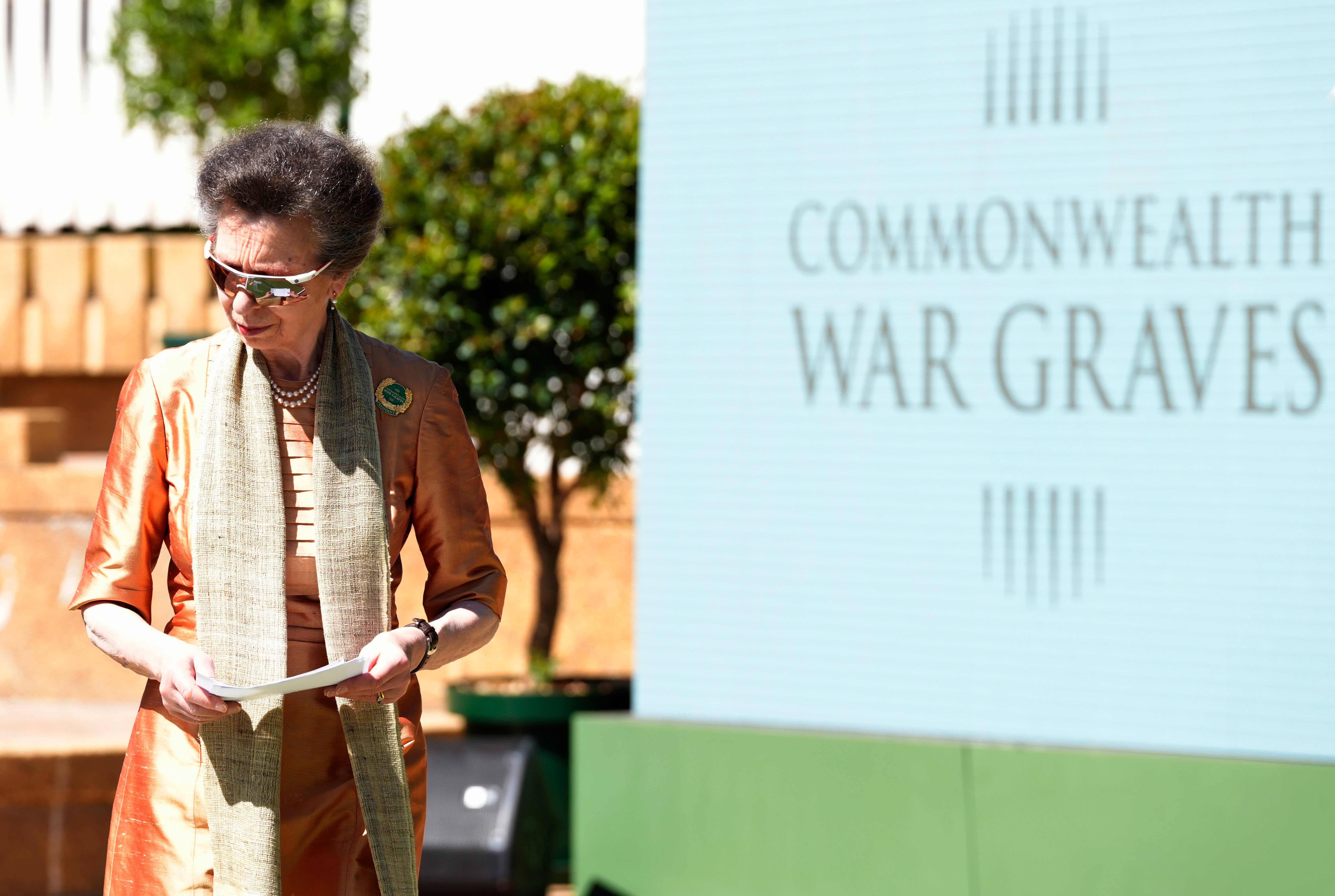Princess Anne unveiled a memorial on Wednesday honoring 1,772 Black South African servicemen who lost their lives in non-combat roles during World War I, their burial sites long unknown and their sacrifices overlooked for more than a century.
The memorial, constructed by the Commonwealth War Graves Commission, features the names of the servicemen inscribed on African hardwood poles, symbolically reaching skyward. A granite plaque at the site, located in Cape Town’s oldest public garden, reads: “Your legacies are preserved here.”
“These men have been overlooked for far too long,” Princess Anne, the commission’s president, said at the ceremony. “They gave everything in the most difficult circumstances, and their bravery and commitment were vital to the Allied efforts. Their legacy deserves the enduring recognition that this memorial offers.”
The servicemen, members of the Cape Town Labor Corps, were barred from bearing arms due to racial policies at the time. Instead, they worked under grueling conditions transporting food, ammunition, and supplies and constructing roads and bridges in battles fought in German South West Africa (now Namibia) and German East Africa (now Tanzania).
Though their sacrifices matched those of the millions who died during the 1914-1918 war, they went unrecognized for decades due to the racial discrimination of British colonial rule and South Africa’s apartheid regime.
David McDonald, operational manager for the Commonwealth War Graves Commission, said the memorial is a long-overdue correction of historical neglect. Research conducted about a decade ago uncovered South African army records identifying over 1,700 Black servicemen, bringing their contributions to light.
McDonald’s team also connected with families of six of the fallen soldiers, four of whom attended Wednesday’s ceremony. Family members laid wreaths and touched the memorial poles bearing the names of their relatives.
“It filled us with pride and joy,” said Elliot Malunga Delihlazo, whose great-grandfather, Bhesengile, was among those honored. “While it saddens us that we cannot locate his remains, we are relieved to finally know that he died in 1917.”
South Africa has numerous memorials commemorating white soldiers from both world wars, but the contributions of Black servicemen were largely ignored until this initiative.
“This memorial ensures their sacrifices will never be forgotten,” McDonald said.

